Conversations with smart people about stuff that affects our world, and how we affect it
Since starting the Foundation for Individual Rights in Education, (FIRE) in 2003, Shibley has helped students and faculty on hundreds of college campuses defend and protect freedom of speech. He is the author of Twisting Title IX, a regular guest speaker for major news outlets and an advocate on campuses nationwide. “Colleges are intended to be that free marketplace of ideas, “ he said during his podcast. ”...And students need to be exposed to different viewpoints and they need to have the ability to be exposed to those different viewpoints.” Shibley has a law degree from Duke University.
Transcript
Robert Shibley: …as opposed to try and tell people they can’t say things that are wrong or bad we ought to be trying to convince them that they are wrong or bad because otherwise you’re just going to drive it underground, and if you’re talking about racism as we often are, is it a goal to have a society that’s free of racism or is it a goal to have a society where it sounds like we’re free of racism because we might be able to accomplish, you know with enough totalitarianism the second one, but you're not gonna accomplish the first one.
Troy Tuttle: From Appalachian State University in Boone NC this is SoundAffect.
Megan Hayes: Student and faculty advocate Robert L. Shibley is the executive director of the Foundation for Individual Rights in Education, otherwise known as FIRE. He is FIRE's second longest-serving employee, having started in 2003 as a program officer for what would become the individual rights defense program. Shibley's experience serving as the managing editor of a college newspaper that frequently decried and faced censorship and bias led him to a career defending the rights of college and university students and faculty members.
Since starting FIRE in 2003, Shibley has aided students and faculty members at hundreds of colleges and universities. Along with traveling to various campuses to speak about First Amendment issues, Shibley has represented FIRE publicly on Fox and Friends and Stossel, as well as on CNN's Lou Dobbs Tonight, in national and international TV and radio interviews, and in published editorials in the New York Post, Boston Globe, National Review, Providence Journal, Daily Oklahoman and other newspapers. He also writes columns for the Daily Caller, forbes.com, and Pajamas Media. A graduates of Duke University and Duke University School of Law, Shibley is the author of Twisting Title IX, from Encounter Books. Robert Shibley, welcome to Sound Affect.
RS: Thank you for having me.
MH: Thanks for taking the time to be here today. So in a couple hours, you will address our campus as part of a week-long series of events we're holding here to discuss matters of speech, in particular to help us find solutions to the challenges that we're facing in balancing constitutional right to freedom of expression with a culture of inclusion and respect for all members of our community. I listened to an interview you did about a year ago in which you said that college campuses are meant to be the ultimate marketplace of ideas in a free society. Can you talk about what that means and why freedom of expression is key to a fully functional academic environment?
RS: Sure, and again, thanks for having me. It's great to be here at Appalachian State. Colleges are intended to be that free marketplace of ideas because it's part of their unique purpose as the idea factories in many ways, of our particular free society of the United States. Research happens at colleges, obviously education, teaching, all those different things, and students need to be exposed to different viewpoints and they need to have the ability to be exposed to those different viewpoints if we are going to actually, not just educate students in a liberal fashion ... And I'm not talking left/right liberal, I'm talking sort of a classically liberal, the idea of openness. If we're going to do that, but also because we need to sift and winnow those ideas, and I think one of the things that concerns us the most at FIRE right now is this idea that there is some kind of platonic ideal of "bad speech" out there that we can all agree is not helpful and not useful.
John Stuart Mill actually talked about that in On Liberty in the middle of the 1800s, when he talked about how even bad ideas are important to consider because a) there may be a grain of truth in them, but b) they make you test your ideas against the ideas you believe are bad. And when you don't do that, what you have is not knowledge, necessarily. What you have is a prejudice against a certain idea. And again, I don't mean "prejudice," I don't mean to load that up with the racial sense that we usually think of it as now, but just this idea that you've already pre-judged what's right and wrong, and you haven't actually had to wrestle with that. And if colleges get to the point ... And unfortunately, I think we're seeing a lot of forces that are pushing in this direction ... If they get to the point where that's the normal course of action and the normal course of business on college campuses, they are not going to be generating new ideas because people won't even be inspecting the ones they have.
MH: I used the word "balancing" between free speech and a culture of inclusion, and I'm struggling with the fact that I presented that as a dichotomy. Do you think they are in tension with one another, and do they have to be?
RS: No, I don't think they are, and that's a common thing, and FIRE works hard not to put it that way. I mean, it's important to respect both, but you actually can't have a culture of inclusion without a culture of free speech, because "inclusion" again, has become freighted with this sort of very 1990s and post idea of a certain political philosophy that goes along with "inclusion." But what it really means is including all kinds of people from various perspectives, and who look different and who think differently, and without free speech, you literally cannot have inclusion. You know, one of the hotly-debated topics on campuses these days is "safe spaces." The idea there are some places you can go and be safe, not just physically safe, but intellectually or emotionally safe in some way from people who would either ... Some people would say "disagree with you or criticize you", other people would say, "call your identity into question."
But one of the things I don't want people to lose sight of for safe spaces is, if a space is safe for a certain group of people with a certain ideology or a certain identity, and the way that space is made safe is by excluding people or punishing people who disagree with them or don't share that identity, that's only a safe space for the people who are currently occupying it. It's not actually a safe space. In fact, it's less safe for those other people. So campuses should obviously be, insofar as possible, physically safe spaces. It's important that universities do their best to make sure that crimes are not happening to students, but it's important not to confuse that too badly with the idea of, you're just uncomfortable or that things are a little unsettling, because that's part of the educational experience as well, even if it's not always pleasant.
MH: You mentioned a little bit about this, but I'm interested in national trends that you're seeing related to free speech on college campuses.
RS: Yeah, well I mean, the national trend that everybody's remarking on right now is this, the really serious sort of disturbances we're seeing on campuses, and Berkeley was obviously the biggest news on that, but also at Middlebury, which is really kind of an interesting place. You expect Berkeley to have a lot of ferment, it's the heart of the free speech movement and of course everybody thinks of Berkeley as being a place where people who think differently would congregate. Middlebury's in rural Vermont, and yet they had sort of a rural Vermont-scale Berkeley situation there, when Charles Murray tried to come to speak, and the idea that we are having PhD speakers in the case of Charles Murray, literally chased out of town because people don't want to hear their viewpoints because they're so angry about it. That's just another form of mob justice.
The idea, and this is happening, people are justifying that as some sort of understandable or even justifiable or even morally right response to speech they don't like, and I think a big part of the problem there is, actually this conflation of physical safety with this emotional or intellectual safety, because if you say, and as many of the folks do say and I'm sure they honestly feel this way, that either Milo Yiannopoulos or Charles Murray is "dangerous," is literally dangerous and that their ideas and their expression actually physically threatens you, it's actually quite a logical response to that, to physically attack their supporters or physically try to get them out of there. Once you've made that equivalence, it actually makes all the sense in the world to do that. Problem is, is that from sort of the outside perspective, it becomes much clearer that having a riot every time somebody comes to campus and you don't want to hear what they have to say is not a practical way to have a college campus, and it's certainly not a democracy either. I mean, if all of our political rallies turned into riots, you make democracy impossible there. I mean, you'd end up with a police state.
MH: You may have addressed this already, but based on those trends, what is your biggest concern about how colleges are responding to controversy and protests that are taking place on their campuses?
RS: There's a couple. One of them is that students, or outside folks who do come onto the campus and that does happen as well, come on to try to silence speakers, they engage in this sort of vigilante censorship. It is important that there be some consequence for engaging in that kind of violence. It's sort of an odd place for FIRE to be explaining that because we've spent most of ... And I know I personally spent most of my career when this comes up, this heckler's veto type stuff ... The heckler's veto is the idea that even though the authorities aren't telling you you can't say something, they're allowing it to get to the position where a mob has made it so that you can't say something, so the hecklers have actually made it so that you can't speak, and that's constitutionally impermissible and I think it's a bad idea anywhere, but colleges do need to take some action. It needs to be reasonable, it needs proportional action, but they need to discourage these heckler's vetoes from occurring.
And then another concern I have is this sort of assumed idea that alluded to earlier, that there is a balance that has to be struck, and that we have to say, "Well, free expression goes up to here but it goes no further." Because once you've accepted that as the ground rules, you're already primed to make sacrifices that, at a state university like Appalachian State may just be illegal and get you sued as well as have FIRE on you and be, in our opinion, morally wrong. It also just, it's counterproductive and it's teaching students that there is something to be afraid of when people are talking, just simply because they are talking, and that's a very bad lesson to send to students. We expect these folks to go to war, sometimes without their consent, like in the case of Vietnam and when there's a draft on, and we expect students to handle a lot of these adult responsibilities. One of the adult responsibilities in a democracy is engaging in that battle of ideas. And look, you're not forced to engage in that battle of ideas, but you also have the responsibility to let it go on around you and understand that people need to have the freedom to do that, and colleges need to be inculcating that and frankly, it's not all down to colleges. I think a lot of students are now coming out of the K-12 system, and there's all kinds of different sociological theories on this, why they would be primed for a situation where they wouldn't be so comfortable with open disagreement with one another, but I think those are the trends that I'm really concerned about colleges knowing what's happening, and there is literally no bottom to the well of controversy that colleges could be facing, and when you think you may have had the worst controversy, there's always another layer to peel off. There's always gonna be somebody with a grievance, and there's always gonna be some legitimacy to those grievances, because this world is not perfect, and once you start to give in on censorship for one thing, it naturally leads to doing it for the next thing and that's very dangerous.
MH: You know, I think when institutions of higher ed are faced with expressions of speech that are controversial or hurtful to others, we have this tendency to turn to policy or other forms of regulation as a way to navigate those challenges. Can you talk about how, I think that you would say this is problematic in terms of our constitutional right to freedom of expression?
RS: Well, I don't think turning to policy ... I think if policy is crafted well and there's a reason behind it and it's a thought-out policy, I think actually it can be a very helpful thing. Now keep in mind I'm an attorney, and so I kind of ... Inculcated in me is this idea that we all agree on something and write it down, that's going to make things better. Of course that's also the idea behind the Constitution and the Bill of Rights and the process of lawmaking in general. But when you have policies that don't comport with the expectations people have, when they're so wildly off of those expectations, or when those policy ideas are just flatly incompatible with some of the other policy ideas that have either come to expect or are legally required, that starts to break down. So I understand that from the perspective of administrators, it can be very tough to address some of these really hurtful and really sort of deep controversies that can happen on campuses, but at the same time, sticking to a policy that has a moral backing ... I'm thinking particularly of like, the University of Chicago's statement on academic freedom. If you say, "Look, this is the policy of this university. We are gonna let everybody have this conversation, we are not going to try to arrange the outcome for it or stick our mitts into it and try to drive it one way or another." I think that could actually be very helpful.
MH: Discussions of free speech don't take place in a vacuum, they're typically precipitated by other events and we've talked about several of those already. I think if we walked out onto our campus mall right now and asked a hundred students ... And I'm sure there are a hundred out there because it's a pretty day ... If they believe in American's right to free speech, every single one of them would say yes. And yet, when expression takes the form of racism or threats it feels like those are the contexts in which we began to start having discussions about the First Amendment. Have you seen examples of college campuses managing those challenges effectively?
RS: Well, I think it'd be very tough. Part of the problem is that you really only see it make the news when campuses aren't handling it effectively, and there's a couple ways of looking at it. Some folks would say, "Well that's just because they're keeping too tight a lid on things, or that there's really no diversity of opinion here or whatever." Or it may be that American tradition of pluralism is actually still flourishing on that campus. I mean I think of my own experience at Duke. I was there between '96 and 2000 for my undergraduate years, and talking to the folks who call me today ... Folks from the Chronicle, which is Duke's newspaper, and about the various controversies that are happening there, I'll sometimes tell them a story about what happened when I was there, and they cannot believe that people got away with saying and doing the things that we did. And that was just 1996 to 2000. I know I look and seem old now, but I remember it pretty well, it was basically now but with slightly less internet. And it wasn't that different a place, and the fact that I can talk to newspaper reporters from my own alma mater now and they say, "Oh, you could never say that at Duke today."
I understand Duke actually has good policies when it comes to free speech, but there is apparently so much social sanction there that it weighs so heavily on people that they don't feel allowed or able to express their opinions. That's not the sign of a healthy society, when people can't say the things that they really believe. We oughta be, as opposed to trying to tell people they can't say things that are wrong or bad, we oughta be trying to convince them that they're wrong or bad, because otherwise you're just gonna drive it underground and you're not going to convince people. If you talk about racism for instance, which we often are, is a goal to have a society that's free of racism, or is it a goal to have a society where it sounds like we're free of racism? Because we might be able to accomplish, with enough totalitarianism the second one, but you're not gonna accomplish the first one.
MH: FIRE utilizes a rating system and maintains a database of over 400 colleges and universities in the United States, and your speech code rating system is a measure of FIRE's opinion of the degree to which free speech is curtailed at a particular institution. Can you talk a little bit about that rating system and why do you it and what your metrics are?
RS: Sure. FIRE, like you said, rates upwards of 440 schools this year. We add a few more every year. We've been doing this since about 2008 and our first year, we rated 79% of schools as red light schools. Which means on a public campus, that they have at least one policy that is basically what we would say laughably unconstitutional. We have a longer explanation of that and I'll actually get into that in my speech tonight, but policies that a lawyer would just go, "No. No way." Yellow light schools are schools that have policies that can too easily be abused in order to censor speech, and green light schools, doesn't mean that they're perfect, but it does mean that they don't have any policies, at least that we can find, that make it possible easily without really bending or abusing the policies, to punish speech.
And we're happy to say that in our last report, we've now gotten the percentage of red light schools from 79 when we started, to about 40% now. Most of those moved into the yellow light category, Appalachian State is a yellow light school, and the green light category has grown as well. UNC and Duke are both green light schools. North Carolina's actually a pretty decent state overall when it comes to that. We also have a whole department that works with schools to get them from red to yellow and from yellow to green as well. So that's how we judge. And at private schools I should note, private schools are not bound by the First Amendment. They do not have to promise free speech, but almost all of them do. There are a few that don't. Some religious schools like Brigham Young is a good example of one that doesn't promise free speech. Vassar is a good example of one that makes it very clear that you don't have free speech there either, and so we give those schools no rating. Or I think now we give it a "warning school." We just say no rating, we're not gonna rate you. Now we say, "Look, you need a warning. This isn't gonna be a normal situation. You need to understand what these folks are saying before you go there."
MH: And so the purpose of the rating system is not only to inform prospective students ... I think that probably is one of the primary, is that correct?
RS: Sure, yeah.
MH: But also perhaps, people who are prospective faculty or staff who are thinking about moving to those places as well?
RS: Oh, absolutely that, and current students ... We get at least dozens, maybe into the hundreds now, requests a year from students that say, "Hey, what is the speech code at my school?" And often we've already got it on there, we picked 400 of the biggest and most prestigious schools, so we've got most of the four-year college students in the United States are covered in our database, but there's a lot that aren't. There are, I believe, about 4000 colleges and universities in the United States. We can't rate them all so we also spend a lot of time looking individually at different schools' policies. Maybe you're in rural North Dakota, but you want to know what it is, and so we look that over that request too and do memos, and then a lot of times those students want to go to administrators and this is one of the places we have the most success, is when students ... They want to get their school to a green light, they want to get rid of the speech codes. They go to administrators and they work productively with them, with FIRE and that's how I think most of the growth in the green light schools has come about.
MH: Yeah, I wanted to ask you about that, because you did mention that Appalachian is one of several colleges and universities in North Carolina with a yellow light rating. I know that you have worked with UNC Chapel Hill on becoming a green light school. Can you talk about that process and how that worked?
RS: Yeah, sure. I mean in that case we had a student who was very interested in free speech on campus, and he really sort of jump started – going to Chapel Hill administrators and saying, "Hey, I want this to be a FIRE green light school, can we work together on it?" I think he was also involved in a student group, either Young Americans for Liberty or Young Americans for Freedom at Chapel Hill, so he had sorta the backing of that group as well. We had actually had a long series at FIRE of disputes with UNC Chapel Hill. I think one year, about three Christmases in a row, we spent our Christmas break ... Well, we didn't really have a break, but we spent that arguing with Chapel Hill, and finally it seemed like the time was right, and that the folks at Chapel Hill were open to suggestions and so we went through, we had long discussions with the general council there, and then the various deans and stuff, and then we would send language back and forth, and they would say, "Well what about this?" And we'd say, "Well, we'd like this." And they'd say, "Okay, well how about this? Does that cover your concerns?" And eventually we got to a point where we both agreed and we were happy to announce them as a green light school.
MH: I mentioned earlier that shortly, and you mentioned this as well, you'll be addressing our campus in a public speech. As an advocate of students and faculty members, what advice will you be sharing with them?
RS: Well, obviously I'll be telling them to call FIRE if there's any problems or visit our website at thefire.org. One of the most important things I'm gonna share I think, is that they need to understand that if you're in a position where you're uncomfortable what's being said on campus and you think that the solution is to call for restrictions on your political opponents, that never stays confined to just your political opponents. That's a weapon that anybody can pick up. And I also sorta want to get across to them as well the value, like I'd said earlier, of hearing different opinions. There is a value even to the people you cannot stand, and hearing them out.
FIRE is a nonpartisan organization, and we're fortunate to have a very politically-mixed group of staff members, and I know that I know so much more about political issues just from our talking, sort of water cooler type talk. But also, what the real fundamentals of what a classically-liberal vision of free speech is. Because when you have two people who have diametrically-opposed views and you are forced, because you work for a free speech organization, to come to common ground, it really helps you get to the elementals of that, and so it helps us defeat a groupthink problem that I think can be really prominent in a lot of different places when you have a situation where everybody sort of thinks alike and they live in the same place. Colleges I think in some ways are uniquely vulnerable to that, because they're all in the same place, they're all usually of a similar achievement level. Often they have very similar economic places, and they may have even similar hometowns, depending on where you are. And so, you've got the makings of a really coherent group there, and there's obviously big advantages to that, but one of the big disadvantages is the idea that certain things just go unexamined, and that's important that colleges work to make sure that doesn't happen.
MH: My final question is similar but separate, because college administrators have a very different role on a college campus than students and faculty. What advice do you have for college administrators who seek to create an environment that respects both individual rights and individual's humanity?
RS: Well, I think my advice would be ... What's the old joke? Like, don't just do something, stand there. I know that's sort of anathema to the creed of crisis management and a lot of different sorts of things, risk management, the sort of forces that we see in schools. But I guess I would urge administrators to know, look, these students are adults, and if you treat them like adults and you expect them to behave like adults, and to work out their differences, frankly we all sort of unspokenly expect ... Let's say half of your high school senior class went to college, the other half didn't. The other half is in the mix. There is nobody looking, there are no administrators looking out for their feelings or doing safe spaces. They're in their jobs, they're doing all those things, and they're handling it.
If administrators ... And I know it's a tough thing to sort of sit there and let these things work itself out, but if you don't, if you take shortcuts, those shortcuts always come back to bite you, whether you force something down ... So I think administrators really should do their best to sort of facilitate those dialogues, but they have to be really careful. I mean, people don't get into jobs like mine, frankly, or like college administration without some pretty strong beliefs, and so it's important not to just assume that what you're thinking and the way you think things should be, is the correct way, because that may not be a shared assumption at all, and you gotta let folks work that out for themselves.
MH: Well, Robert Shibley, thank you so much for your time today. I'm really looking forward to your talk this evening, and you know, I know what we've discussed today is a jumping off point in a lot of ways for the work that we're continuing to do here on our campus and I appreciate you taking the time here, because what we hope to do is take this podcast and use it to extend that conversation, and continue to revisit it at times when we need to think back on, "What is that advice that we really need to have from those experts that come to our campus?" So thank you so much for being here.
RS: Well, thank you for having me.
MH: Today’s show was written and produced by Troy Tuttle, Dave Blanks and me, Megan Hayes. Our sound engineer is Dave Blanks with assistance from Wes Craig. Our web team is Pete Montaldi, Alex Waterworth and Derek Wycoff. Research assistance comes from Elisabeth Wall and video and photo support come from Garrett Ford and Marie Freeman. Our theme song was written and performed by Derek Wycoff of Naked Gods. Our podcast studio is dedicated to Greg Puddy and a special thanks to Stephen Dubner for inspiration, advice and moral support. SoundAffect is a production of the University Communications team at Appalachian State University in Boone, NC. Thanks for listening. For SoundAffect, I’m Megan Hayes.
What do you think?
Share your feedback on this story.
Listen to podcasts recorded during the weeklong series of events held in March, 2017
Conversations with smart people about stuff that affects our world, and how we affect it
About Appalachian State University
As a premier public institution, Appalachian State University prepares students to lead purposeful lives. App State is one of 17 campuses in the University of North Carolina System, with a national reputation for innovative teaching and opening access to a high-quality, cost-effective education. The university enrolls more than 21,000 students, has a low student-to-faculty ratio and offers more than 150 undergraduate and 80 graduate majors at its Boone and Hickory campuses and through App State Online. Learn more at https://www.appstate.edu.

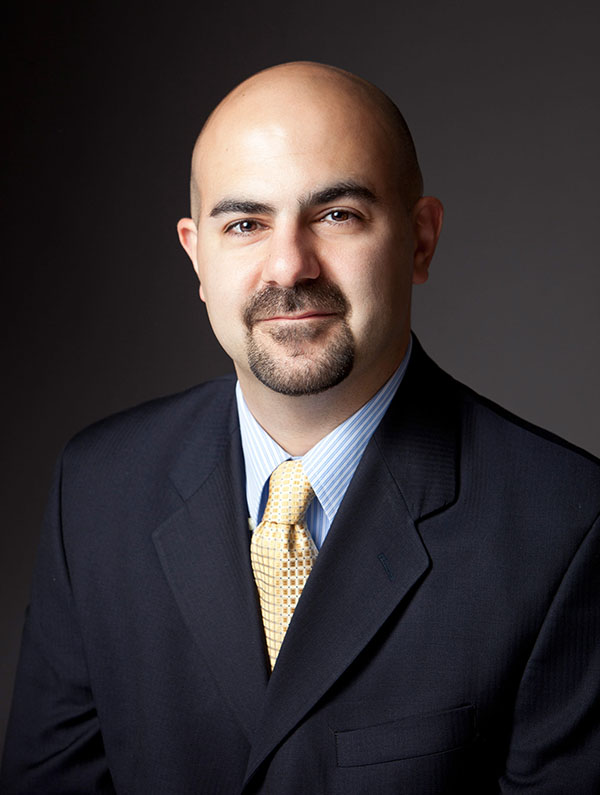

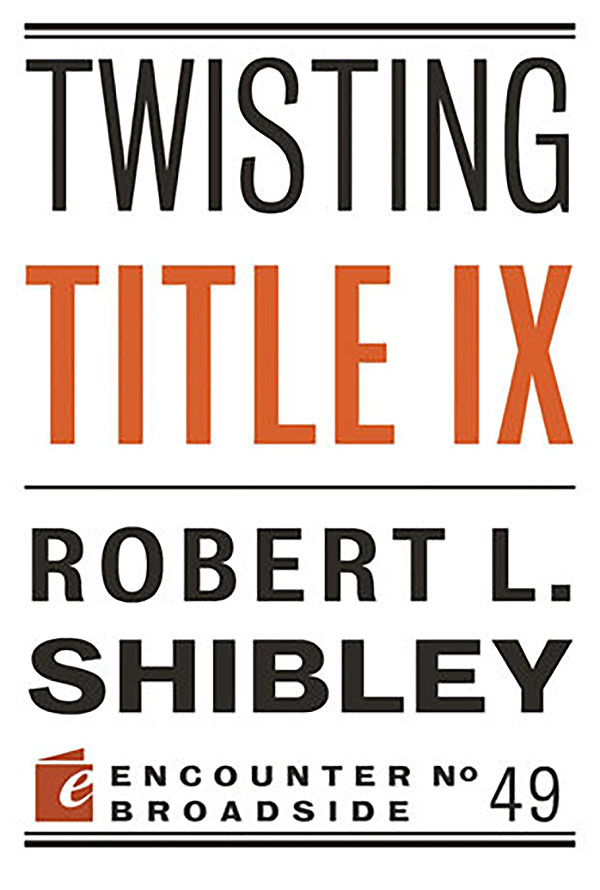
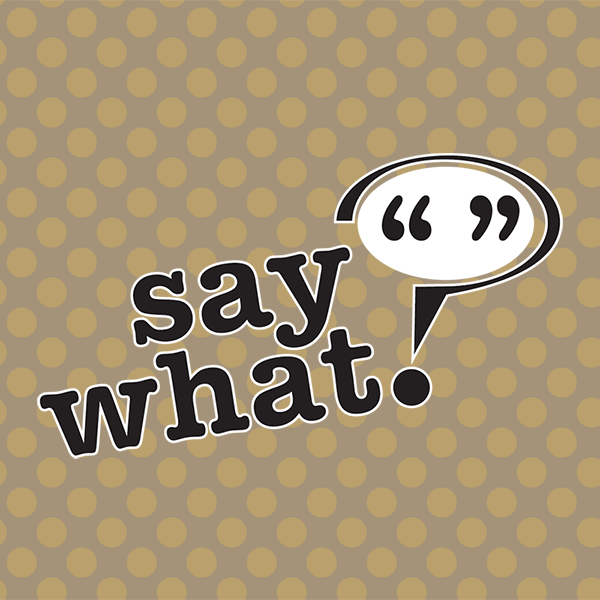
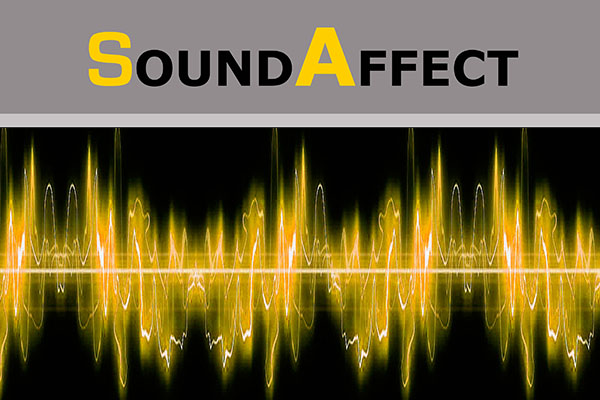
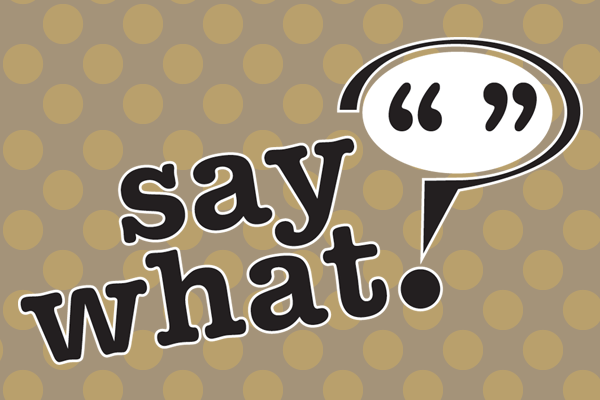



![How NCInnovation Is Rethinking Economic Development in North Carolina [faculty featured]](/_images/_posts/2026/02/rethinking-economic-development-600x400.jpg)







